September 20, 2011
There are only so many seminal musical moments in one’s life, and the first time I saw Return to Forever live was one of them. I felt as if my head cracked open and exploded from the inside. But I digress.
As a teen of the 70s, I was drawn (without explanation) to artists signed to Manfred Eicher’s ECM (e.g., Edition of Contemporary Music) label. It wasn’t just the stunning zen like imagery on the cover of every pressing. And I was probably still too young to fully appreciate the unprecedented freedom Eicher the producer afforded his international roster of artists any time they entered the studio. Still, something about the utter musical liberation completely unmoored from tradition and the mainstream got its hooks into me. Even if some of the music was so arcane and outside to my ears, I took pride in my ability, if not patience, to expose myself to such intellectual pursuits that aimed straight for the head. I didn’t read Kerouac or Ginsberg (at least until later), I listened to Jan Garbarek and Terje Rypdal. This from a kid who had been spinning Zeppelin, the Allmans, the Who, the Stones and anything else guitar driven and blues influenced since I was a wee lad. It was truly a new universe of possibilities. I had heard Miles, maybe a little Coltrane, and some of the more mainstream CTI catalog like Freddy Hubbard, George Benson (before he tunefully opened his mouth) and Hubert Laws, but my jazz vocabulary was limited to about, well, what you would expect for a musically curious 14-year old in the earlyish-70s. ECM blew that door wide open and I was introduced to the likes of Gary Burton, Pat Metheny, Ralph Towner, John Abercrombie, Keith Jarrett, and yes, Chick Corea, for the first time.
Light as a Feather (released on Polydor), didn’t blow my mind, it blew me away. This was world influenced jazz not bound by tradition, but grounded in the rich humus of an ancient rainforest and stirred to flight to move body and spirit. Flora’s ethereal refrains, the killer sound of Chick’s Fender Rhodes running fleetly in step with Airto’s can’t keep it in frenetic pace. The quieter moments when the ensemble steps back and Stanley Clarke’s tone is as fat and satisfying as a deep blue lake, then moves and hustles like a greyhound while never losing that same tone. Joe Farrell’s tenor and flute a perfect foil to all, with solos that breathed and inspired. This was jazz as I’d always wanted to hear it.
Flash forward a year or two, and the influence of guitar heavy rock was absorbed by jazz players everywhere, for which many a critic hold Miles’ ”Bitches Brew” accountable and certainly the alums of that project, Chick Corea and John McLaughlin among them, embraced with great enthusiasm. This was hyper-attenuated, black hole dense stuff not for the faint of heart. Of course, I took to it like a narcotic, the denser, the more complex and precise the playing, the better. I ate it up. Mahavishnu Orchestra’s Birds of Fire or Inner Mounting Flame, or RTF’s Hymn to the Seventh Galaxy were not exactly meditative and introspective. My unhealthy attachment to jazz fusion was an acting out, not a cry for help, but a need to be different. It was my ‘90s grunge phase, just 20 years earlier, it didn’t get me a lot of dates, but I made some good male friends with similar musical tastes.
Which brings me back to the first time I saw RTF live. Somehow, my 15-year old self and a buddy found our way into the legendary Troubadour for their first tour with Al DiMeola. We were seated at the foot of the stage and to open the show, Scatman Crothers, who must have been in his mid-60s at that point, came out armed with nothing more than a ukulele and a lot of courage. He entertained the room for a half-hour or so. Herbal substances may have been involved and the incongruity of the billing had my not so nimble mind confused, and the anticipation for the headliner on high boil. This was the “Where Have I Known You Before” tour and from the moment these four guys hit the stage, it was lights out. I had never experienced music so physically imposing live. The room could not contain the intensity. The barely out of his teens DiMeola had recently replaced Bill Connors and Chick was a long way from the gentle Fender Rhodes sound of Light as a Feather. This was knife edge stuff. Lenny White must have had four hands and Stanley Clarke was simply a force of nature. The world looked different, brilliant, potentialized after this show.
Not until recent years have I dared to revisit much of this music, fearful that time would not treat it kindly in the 2000s. To the contrary, our downloadable era of forgettable singles, classic rock pimped to the extremes, faux playback that fills arenas and Garage Band, reflects rather well on the jazz fusion pioneers of the ‘70s. In fact, the in your face compositional and technical brilliance expressed by RTF and others stands out as strikingly immediate, pungent and real. So, it was with great anticipation I headed to the Greek to hear the fourth gen of the band (billed as RTF IV).
After a 30-year break, this tour is the second RTF reunion in 3 years and has a slightly different look. The core of Corea, Stanley Clarke and Lenny White remains intact and is interestingly augmented by ‘70s fusion pioneer in his own right, violinist Jean-Luc Ponty, with Frank Gambale stepping in for DiMeola. The buzz for the tour has been very strong, the band reaching back to cover signature compositions including Corea’s “Spain”, Ponty’s epic “Renaissance” and Clarke’s “School Days”. Sets for earlier dates had been consistently 8-9 tunes in length ensuring ample exploration from all.
The Greek was filled. A great sign to begin with that this music still has a strong audience. And it was an appreciative one at that. The performance was introduced by none other than RTF aficionado Kareem Abdul Jabbar. Kareem, not known for his public verbosity was warm and chatty, and that’s saying a lot right there.
Opening with “Medieval Overture” (from 1976’s Romantic Warrior), RTF IV launched headfirst into what would be an off the charts night. With Ponty effortlessly blending into the band, and interestingly enough, lending the same instrumentation that defined Mahavishnu (with whom he played in the band’s later years), the virtuosity of the RTF unit was on full display and would remain so throughout the 100+ minute performance. The control and finesse to take the composition through its entire dynamic range, each player matching the other note for rapid fire note was pretty staggering, as it was for “Captain Senor Mouse” (from 1973’s Hymn to the Seventh Galaxy) which followed. “Captain Senor Mouse” had Chick standing and ready to jump with the composition’s Spanish influenced flourishes and synth runs, accompanied by Frank Gambale’s uncanny ability to turn on every twist and accent. Dipping again into Romantic Warrior (three of the nine tunes from the performance were off this album) for Lenny White’s “Sorceress” and then segueing into “Shadow of Lo” (from 1974’s “Where Have I known You Before”), the piece began with a lengthy intro featuring fine work by Ponty that morphed into a funk groove. As the cool night air met the intensity of the stage, steam was emanating from all the players, and Lenny White in particular appeared to be the answer to the country’s energy issues. With the segue into “Shadow of Lo”, Chick seamlessly moved between has Yamaha grand and synth/electric keys. The bridging/blending of acoustic and electric throughout the evening was a pleasant surprise and a trick to pull off, given the character and intensity of the band’s overall sound and compositional approach. On these (and other) tunes, each player found new ways to converse with one another with great moments of interplay between Corea and Ponty, and especially Corea and Clarke. RTF IV are giants of musicians and the touch and finesse they bring to material that could so easily become heavy handed is beyond impressive, it’s a feat that defies science. Yes, I’m speaking superlatives, but it was that good.
A moment about Stanley Clarke. Few living musicians have transformed the bass into a lead instrument the way Stanley Clarke has. Period. And the man is in fighting shape. Heck, until he stood next to Kareem, I’d almost take Clarke to get the better of a one-on-one between the two. For Ponty’s”Renaissance” (from his 1976 Aurora), Clarke pulled out his upright and Ponty put down his trademark blue electric as the whole band went acoustic. Clarke played below the bridge, top of the neck, slapping, thumbing, fingers moving faster than the flying horsehair of Ponty’s bow. His solo was a highlight in a performance full of highlights. As the audience found out later in the evening (with all but Gambale taking turns as emcee chatting warmly with crowd), Clarke had many friends and family at the show and no doubt even more inspired to be at the top of his game. On his “After the Cosmic Rain” (also from Hymn to the Seventh Galaxy), Clarke’s fingers were dancing faster than a flamenco master while RTF moved from galloping Spanish dance to total swing and back again.
The title cut from Romantic Warrior displayed glimpses of Chick’s classical side with Clarke later pushing him to swing again, harder (perhaps Ponty’s influence brought these occasional swing elements into the mix). Corea’s “Spain” (from 1972’s Light as a Feather) is easily considered a contemporary jazz classic, with many varied interpretations through the years (including his own). Beginning with an almost somber intro by Ponty, the entire RTF unit simply flew from start to finish with Lenny White engaging Corea in a brief duel of sorts to punctuate and play with the song’s familiar time. Perhaps most impressive, however, was the ability of Corea to engage 5,000 people in a jazz sing along. Not a few la-la-las, but up and down and around the composition’s complex melodies, echoing Chick’s keyboard runs. Corea was introduced earlier in the set as simply “The Maestro”. After pulling that off, I couldn’t put it any better.
Clarke’s “School Days” (from Clarke’s 1976 album of the same name) provided a raucous “encore” to the evening with opener Dweezil Zappa duking it out with Gambale, and Clarke practically shredding his 4-string to pieces. The interplay with Ponty, Clarke and Corea was dazzling and there were enough 256th notes (or so it seemed) to go around for everybody. As the set finished and the house lights went up, RTF remained on stage greeting friends, shaking hands with fans and hanging out.
Zappa Playing Zappa was an appropriate first act, especially with Jean Luc Ponty’s connection to Frank (Exhibit A, 1970’s King-Kong: Jean Luc Ponty Plays the Music of Frank Zappa). Chick Corea joined the band mid-set for “King Kong” to Moog it up, and trade licks, wails and squelches with Dweezil. The elder Zappa’s SG playing is legendary and under-acknowledged and Dweezil eerily matches that guitar voice and fury. In fact, he custom built his SG to replicate his father’s and the replica is so accurate, it is often mistaken for Frank’s original guitar by fans (so says Wikipedia). Many Zappa “hits” ensued including “Don’t’ Eat the Yellow Snow” (replete with full circular motion), “St. Alfonzo’s Pancake Breakfast (from 1974’s Apostrophe) – where I stole the margarine, “Dancin’ Fool” (from 1979’s Sheik Your Booti) and “Pojama People” which opened the set (from 1975’s One Size Fits All). Ben Thomas’ vocals were uncanny in capturing Frank’s inflection and humor. This is a musical legacy that truly lives on, however acquired a taste.
RTF still plays as if possessed by a single Vulcan mind meld and the performance at the Greek was nothing less than astonishing (another superlative). I latched on to the cerebral appeal of the music when I was younger and am now celebrating its maturity, cohesion and warmth. Yes, warmth that comes from generations of playing together, that pushes and challenges each individual, and the exuberance from everyone on stage at the Greek. Cohesion that comes from balancing quieter moments of introspection and thunderous power to a satisfying resolution. Maturity that comes from almost unexplainable intuition and nuance. For me, it really was a return. A reminder of the sheer power of contemporary music and its timelessness. Return. To Forever.
Postscript: A special shout out also goes to Yamaha, to which Chick Corea has been a loyal customer for many years, and whose sponsorship helped make this tour (and blog post) possible.

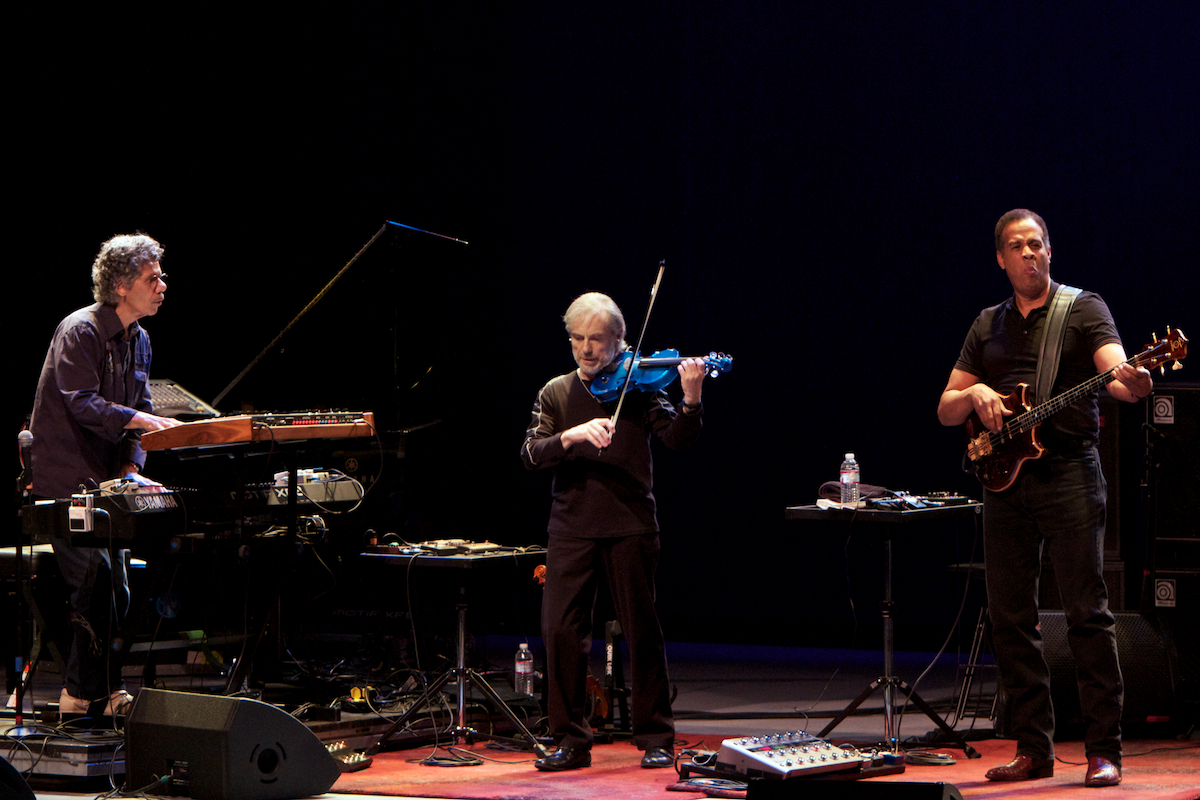
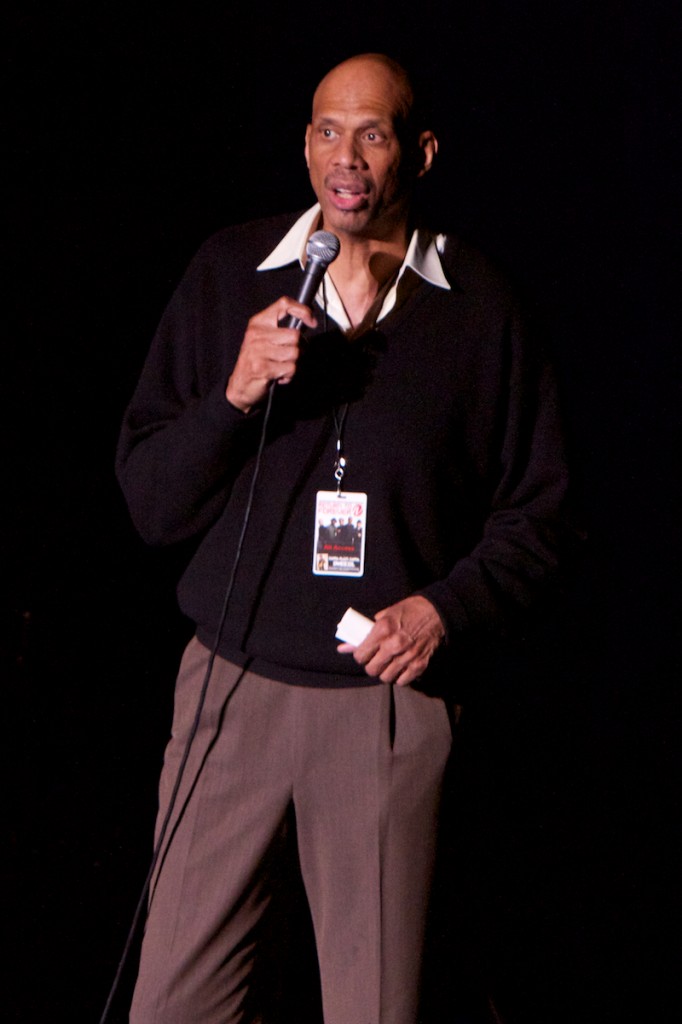
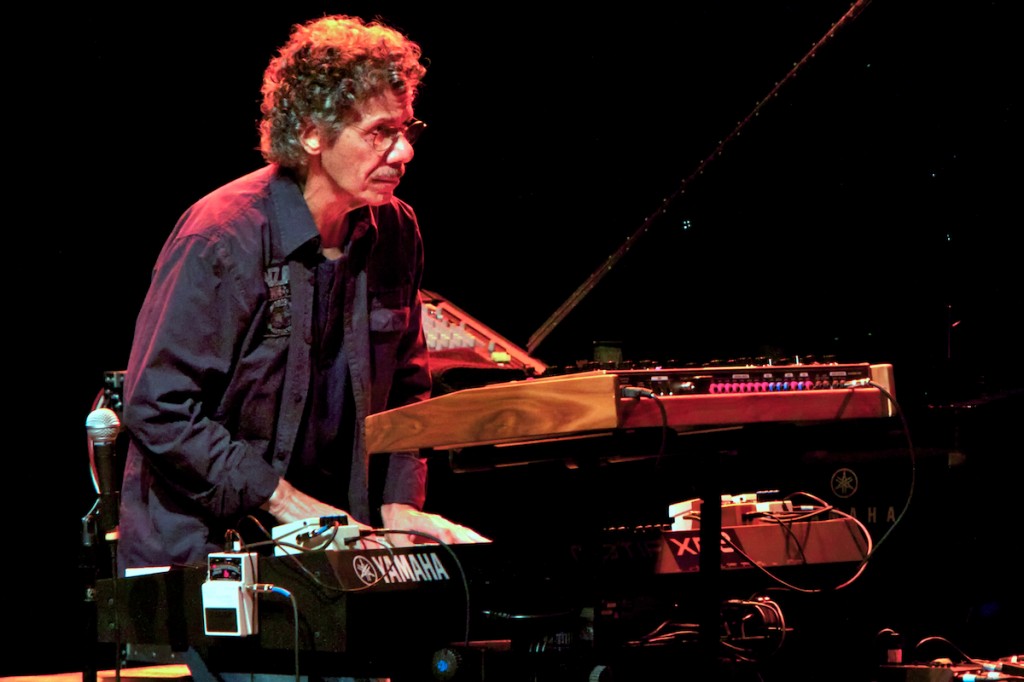
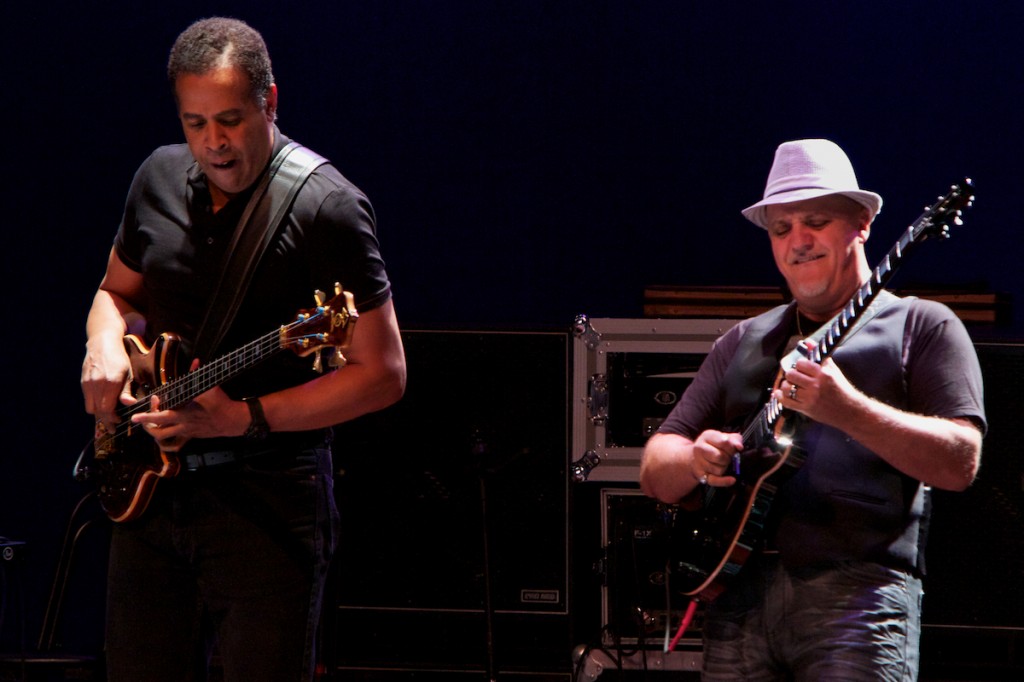
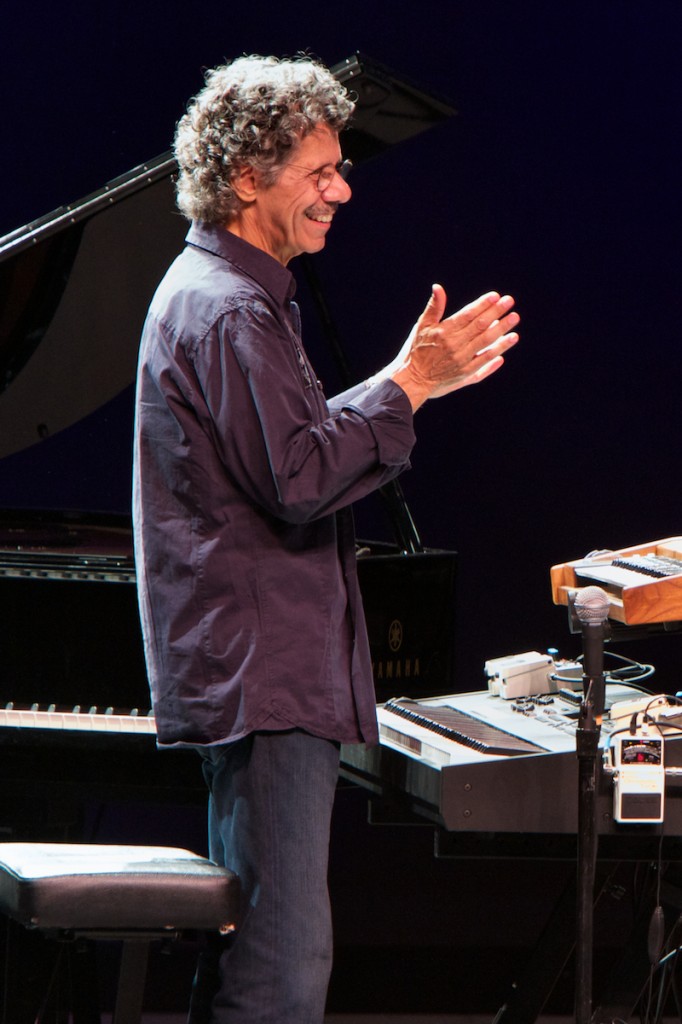
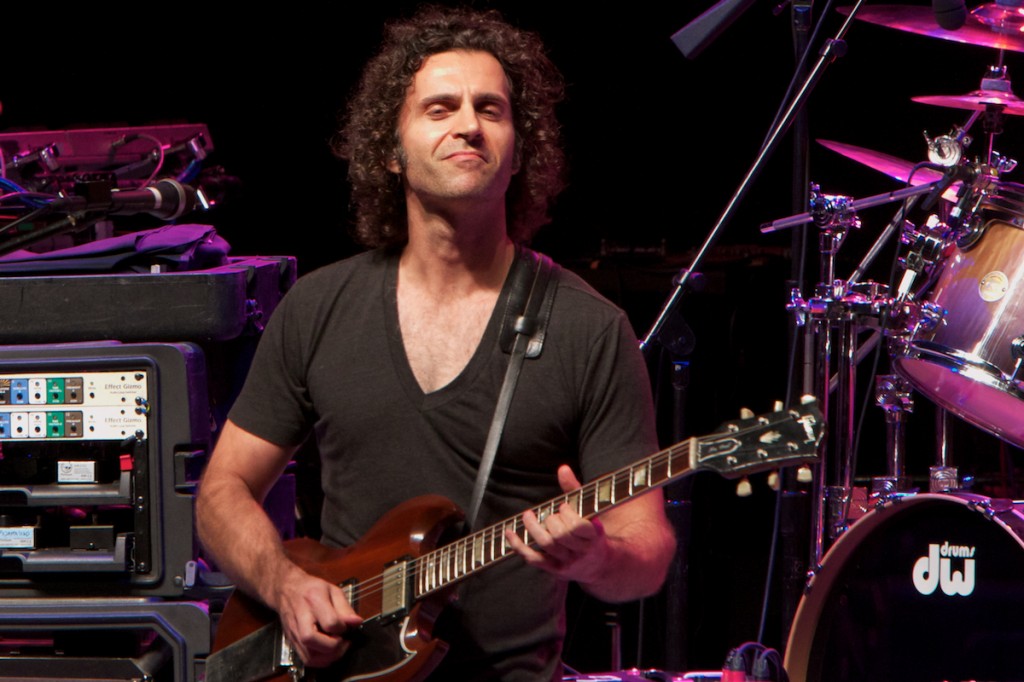
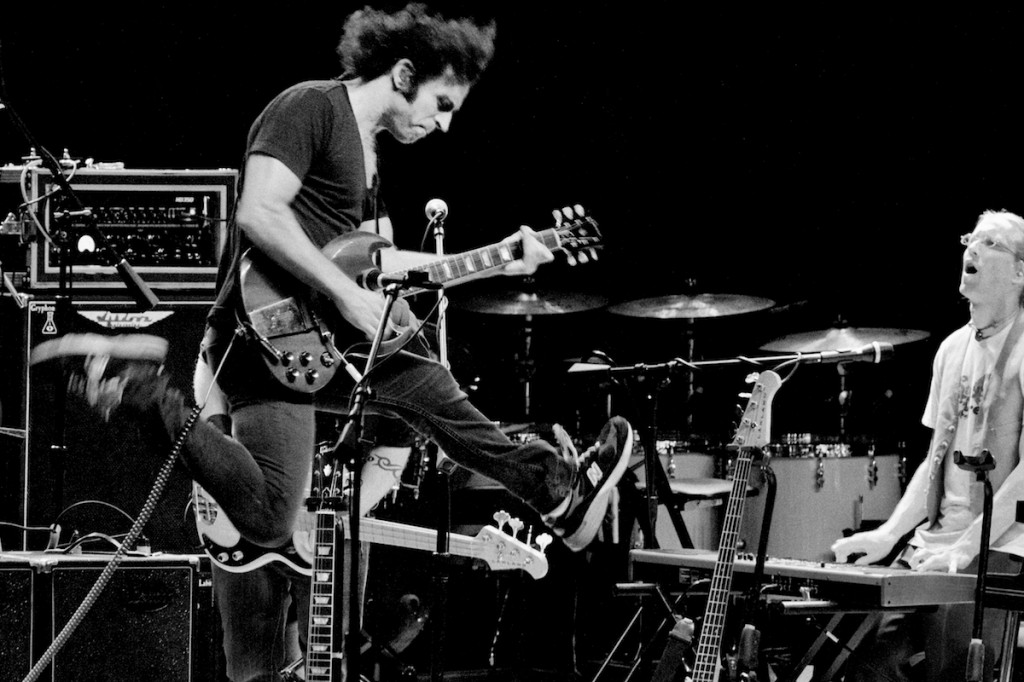
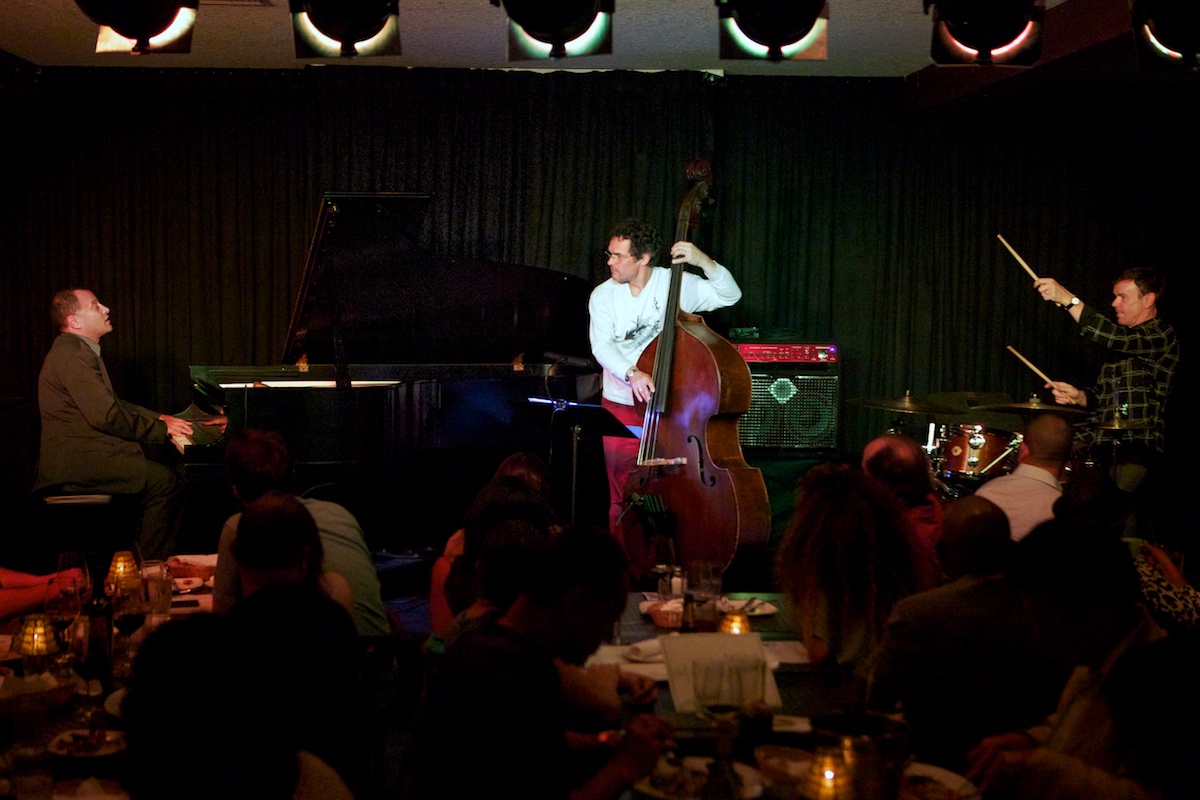
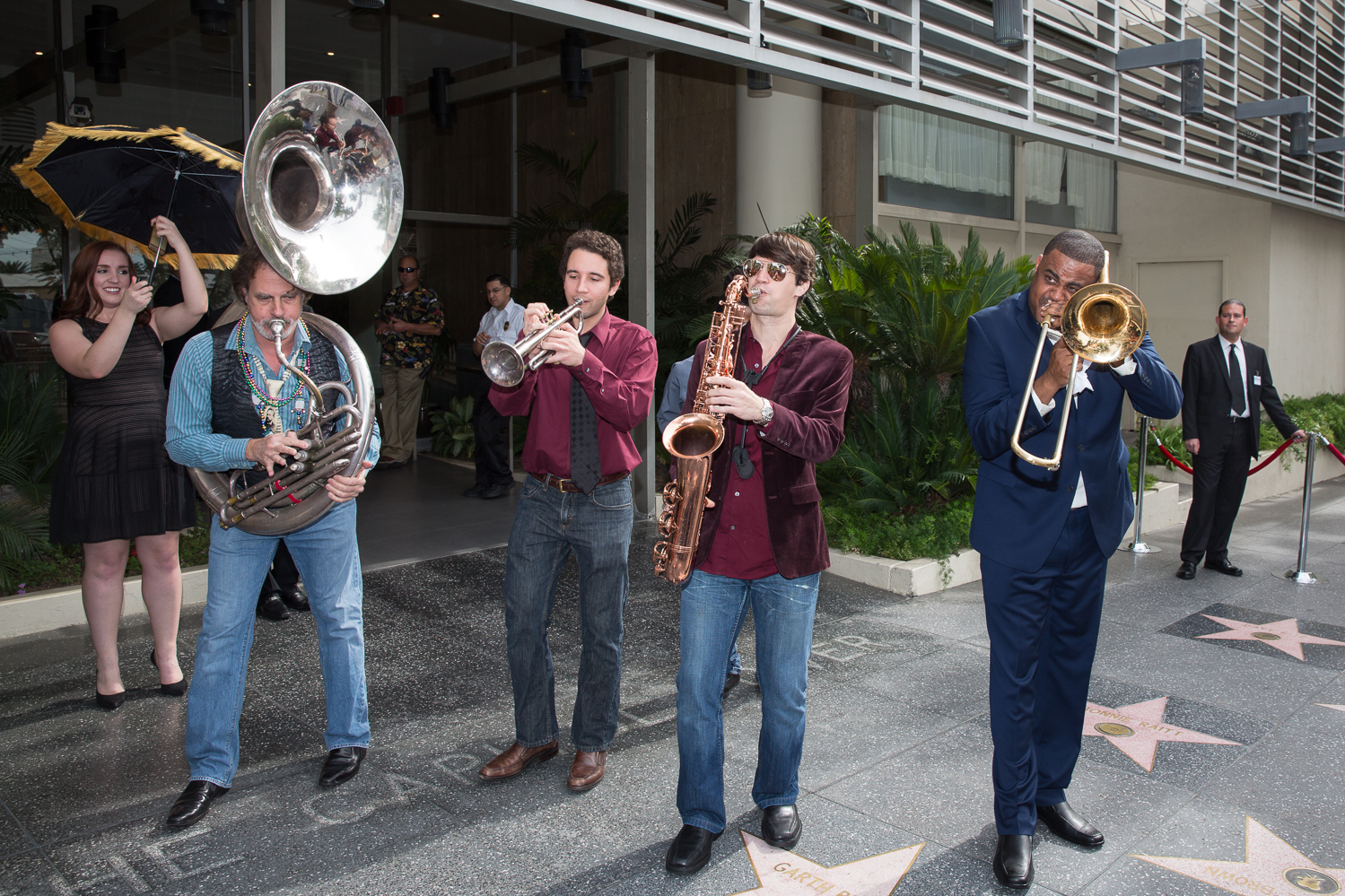
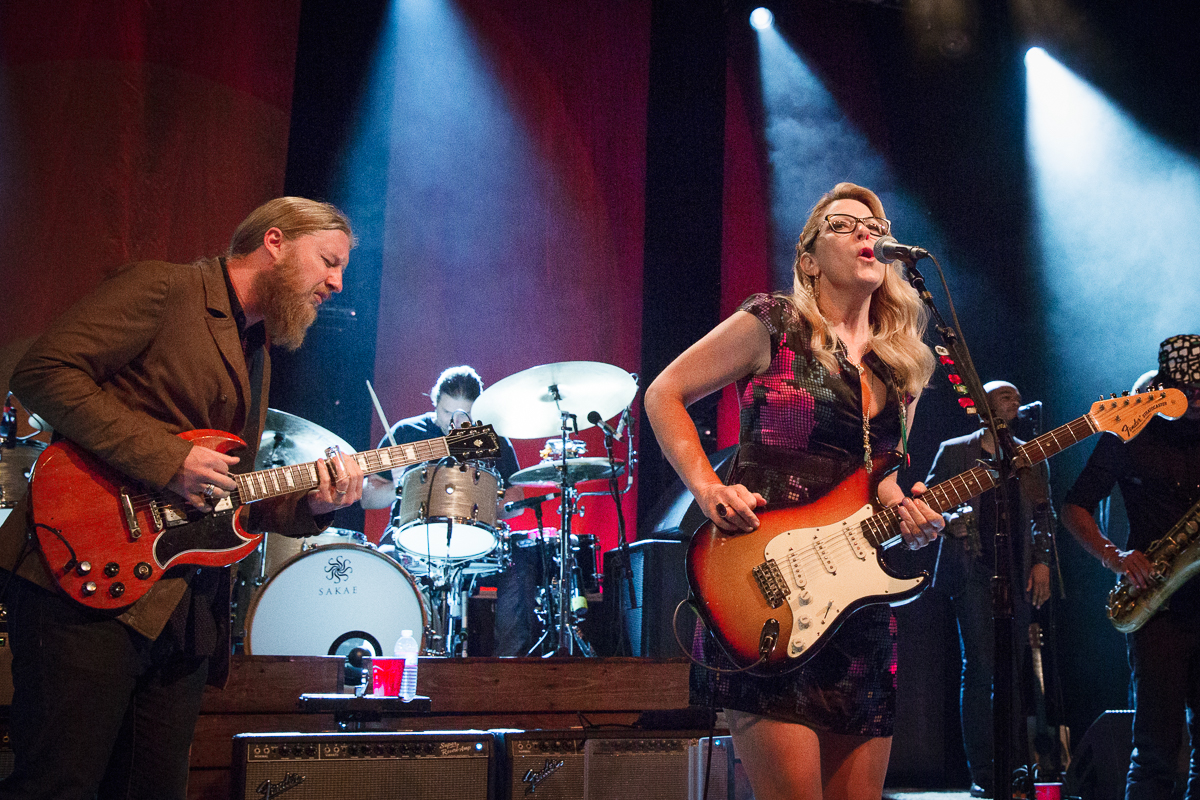
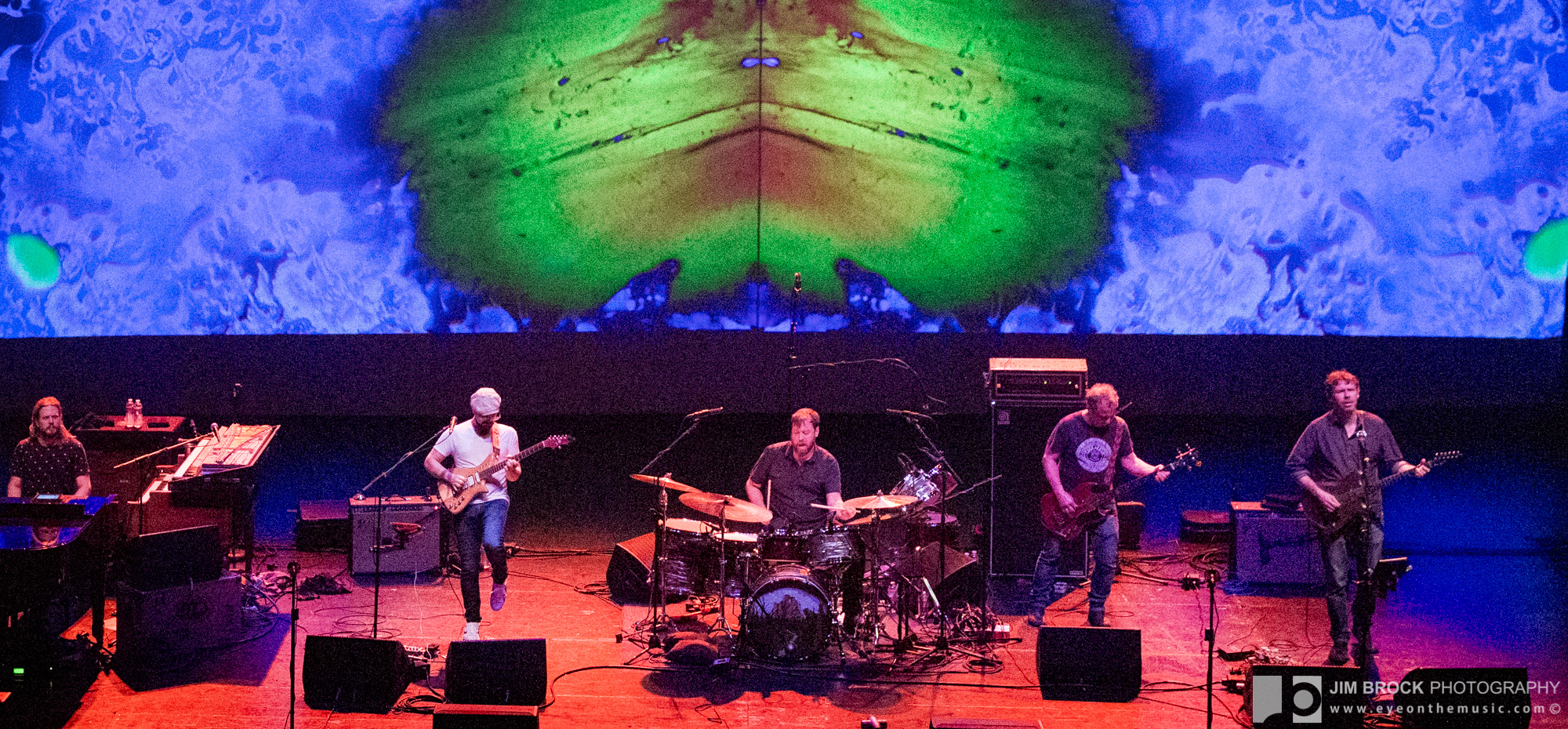
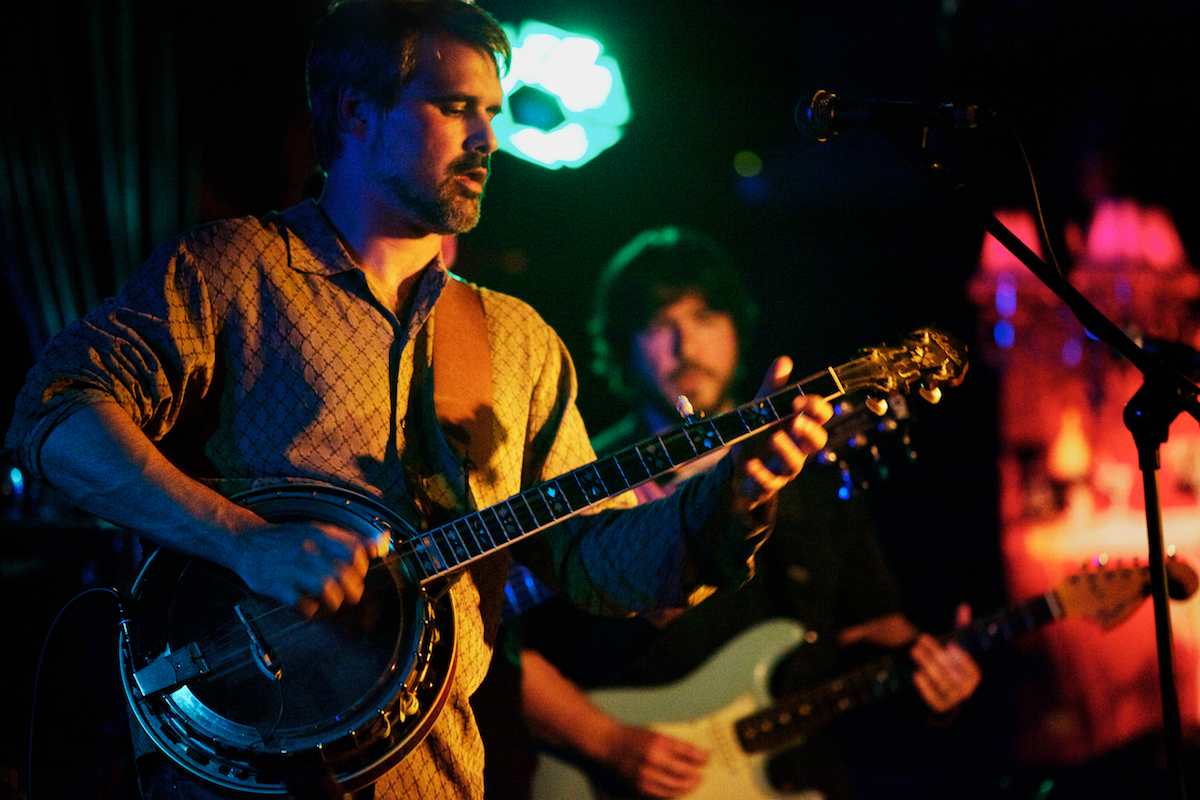
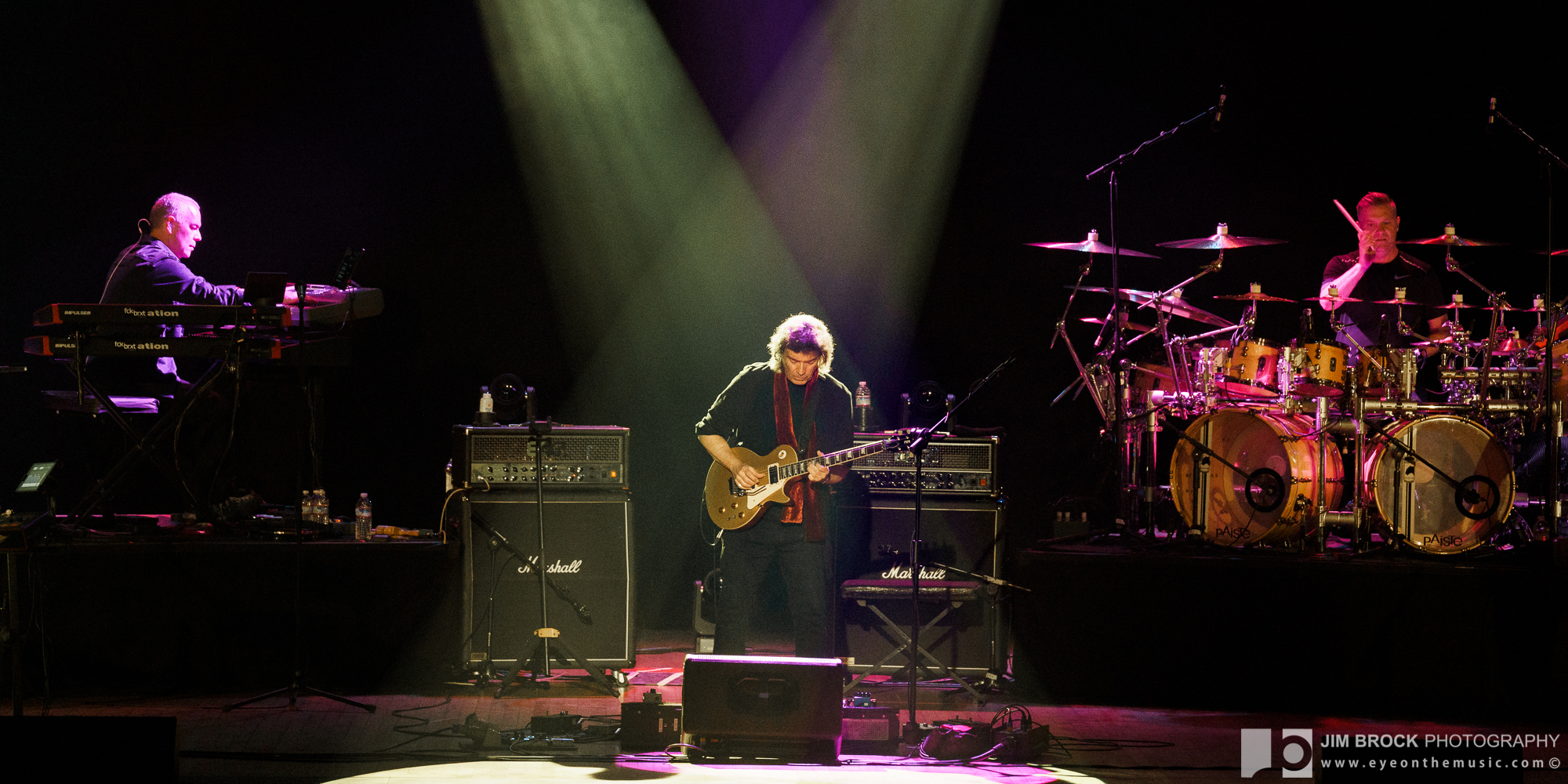
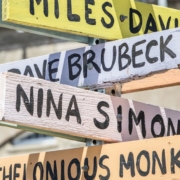
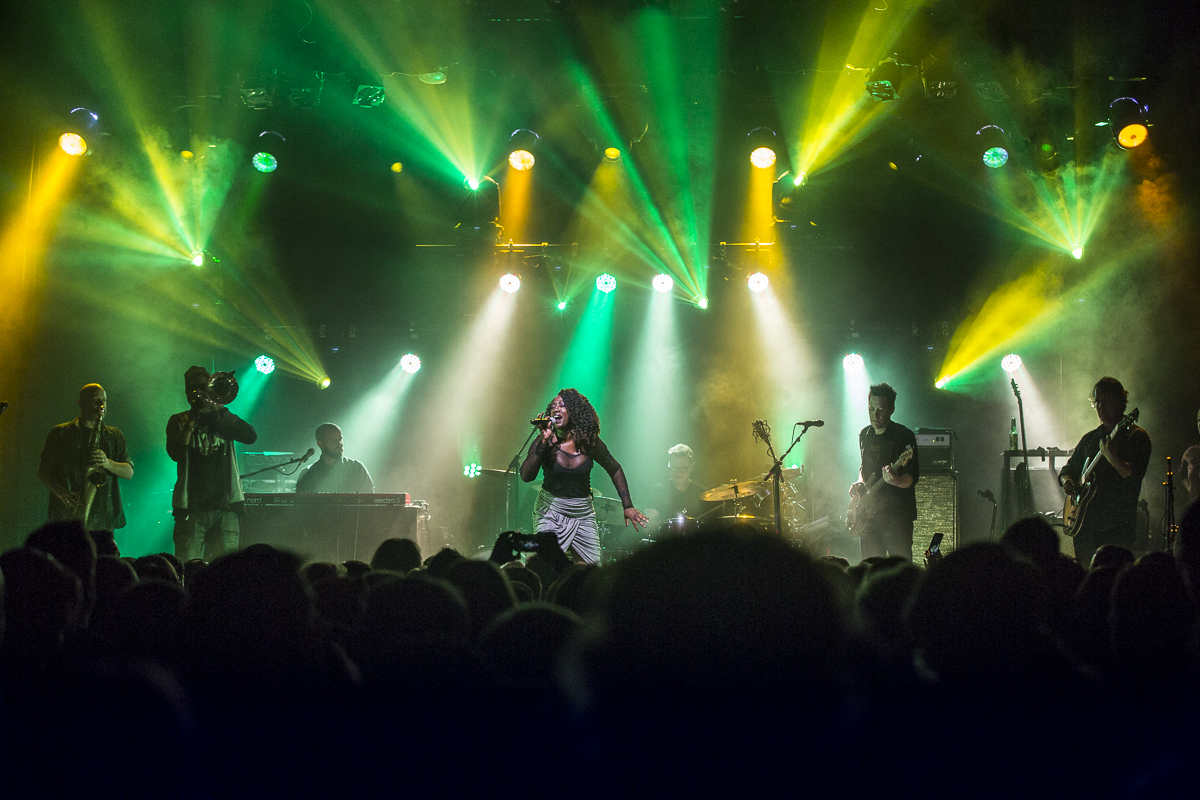
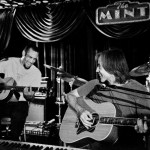
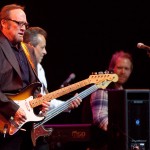
James, thanks for the great blog and images. After seeing their wonderful show myself last night at The Warfield in S.F. all I can say is AMEN. It’s also nice to finally know why I didn’t get a lot of dates back then. BTW, I always remembered it as you having the juice to get us into the Troubadour that night, how DID that happen at 15 ?.., sure did crack me open, too, thanks buddy.